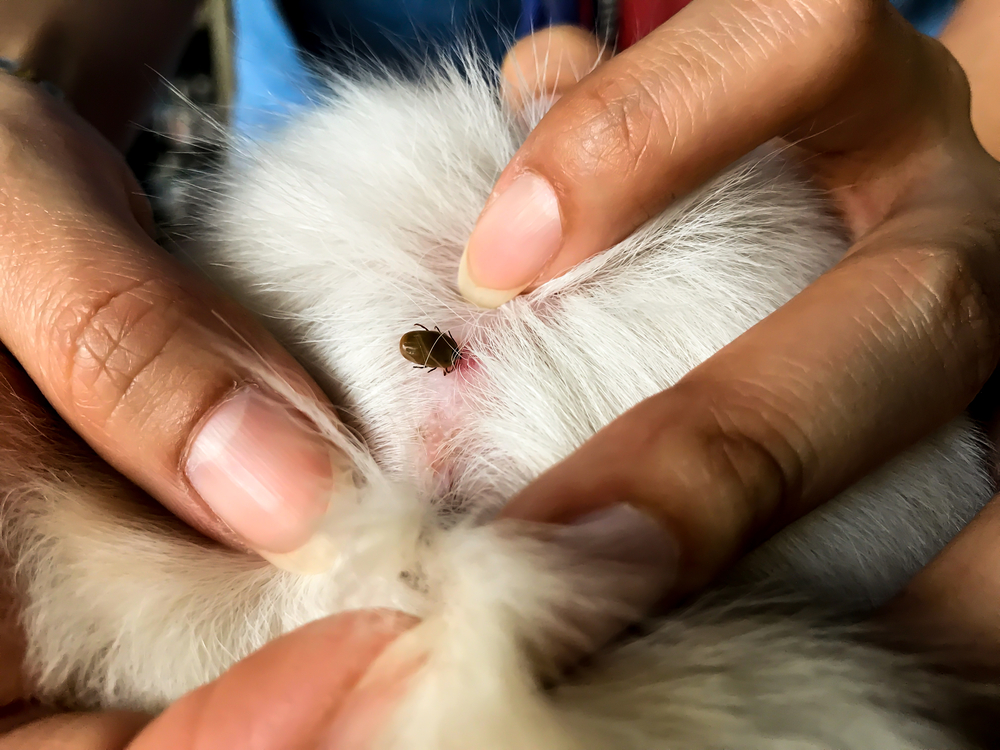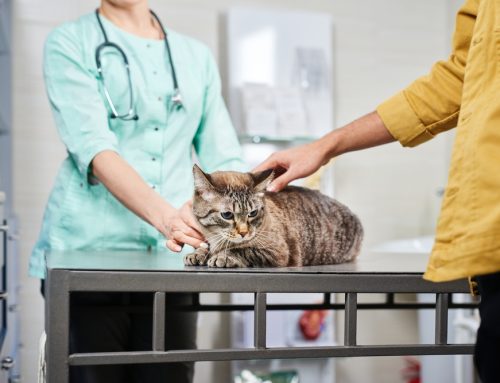This scenario may sound familiar: You receive your pet’s reminder card, and see a slew of letters and numbers that don’t seem to form any legible words. You aren’t sure what your pet needs, but you figure it must be important, so you schedule an appointment. You arrive at Twin Maples Veterinary Hospital, check in, and talk with our veterinary team while we examine your pet. A series of tests are mentioned, and because you trust our dedicated team of veterinarians, you agree to the recommended diagnostics, which may include a fecal examination, heartworm and tick disease testing, or routine blood or urine testing. But, if your pet is feeling fine and acting normally, are these tests really necessary? According to the American Animal Hospital Association (AAHA), preventive testing is essential for pets of all ages. Here’s why:
#1: Testing can help catch disease early
Pets age more quickly than their two-legged counterparts, so evaluating them routinely for early disease signs is crucial. Since dogs, cats, and most other animals are experts at hiding pain, pet owners may not pick up on subtle clinical disease signs. And, while our highly skilled team does look for abnormalities during your pet’s physical exam, problems aren’t always evident. Routinely sampling your pet’s blood and urine for changes in blood cell levels, enzymes, glucose, and other variables is the ideal way to monitor internal functioning. Many pets will act and appear completely normal, yet their lab work will reveal early signs of diabetes or kidney disease. Why is this important? Because early diagnosis leads to early intervention, which may better your pet’s prognosis, and may prolong their life.
#2: No state in the U.S. is heartworm-free
Heartworm disease is characterized by a parasitic worm transmitted by mosquitoes. The larvae develop in the tissues of an infected pet, and head toward the heart and lungs, where they mature over several months. As the disease progresses and the worms grow and multiply, the worm burden begins causing clinical signs such as difficulty breathing, coughing, and exercise intolerance. While treatable, heartworm disease is incredibly burdensome for the affected pet, the treatment can be long and expensive, and survival is not guaranteed. Heartworm is especially common in the warm, moist Southeastern U.S., but Ohio, and especially Southwest Ohio, is a hotspot for this debilitating disease. But, by testing your pet annually for the heartworm antigen with a quick, tableside test, you can rest assured that your precious pet stays heartworm-free. While especially important for pets who don’t receive routine heartworm preventive medications, all pets should be tested annually, according to current recommendations.
#3: Some dangerous feline diseases are contagious
If you share your home with a feline friend, chances are you’ve heard of FeLV or FIV—Feline Leukemia Virus and Feline Immunodeficiency Virus, respectively. Whether your cat came from a shelter, or you brought them home as a kitten, they likely had a blood test at some point to look for evidence of these two diseases, which can be passed from their mother or spread through saliva or biting, and are common among feral cats or felines that spend time outdoors, potentially interacting or fighting with other cats. FeLV and FIV testing, which we can do in our clinic, is quick, simple, and important for all cats, but especially for multiple cats in one home, and for any cat being rehomed. If you are unsure whether your pet has been tested for FeLV or FIV, contact us, and we can discuss your cat’s medical record.
#4: Intestinal parasites are often silent
Ah, the annual fecal sample. Do you ever wonder why we’re so interested in your pet’s poop? If you’ve never seen worms in your pet’s stool, that doesn’t mean they aren’t alive and well in their intestines. In general, adult worms such as roundworms, hookworms, whipworms, and tapeworms live off the tissues and blood in your pet’s belly. When the worm load is low, your pet may not show any abnormal signs, but her fecal sample may tell a different story.
Adult worms readily pass their eggs (i.e., ova) in the stool, which we then discover on microscopic examination. Some pets will also have signs of an intestinal worm burden, such as diarrhea or blood in the stool, whereas others are completely asymptomatic. Since many of these parasites can be passed to humans, it’s best to ensure your pet receives a fecal exam at least once a year.
#5: Parasite prevention isn’t fool-proof

While prevention medications are generally effective in discouraging ticks, they can still attach to your pet, and spread dangerous diseases. We know that remembering to give your pet’s monthly flea and tick medication can be arduous, but missing doses increases your pet’s risk of tick-borne disease development. To help mitigate this potential problem, we recommend testing at least every year for common diseases spread by ticks, including Ehrlichia canis, Ehrlichia ewingii, Borrelia burgdorferi, Anaplasma phagocytophilum, and Anaplasma platys. The simple, tableside test requires only a small sample of blood, and provides results in minutes. Many of these conditions are common in Ohio, but clinical signs may not manifest until the disease is advanced. Routine testing provides peace of mind, and allows for early treatment should your pet test positive.
Want to know more about wellness testing, or to check your pet’s test status? Contact Twin Maples Veterinary Hospital, and we will be happy to see you and your pet.









Leave A Comment